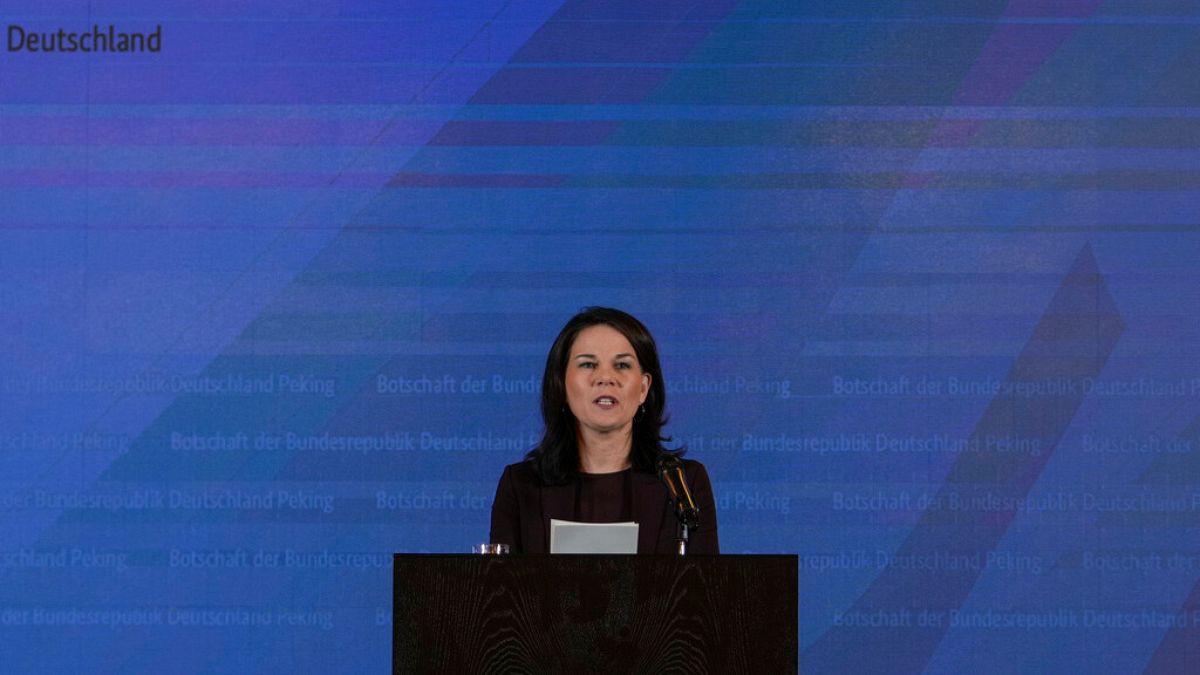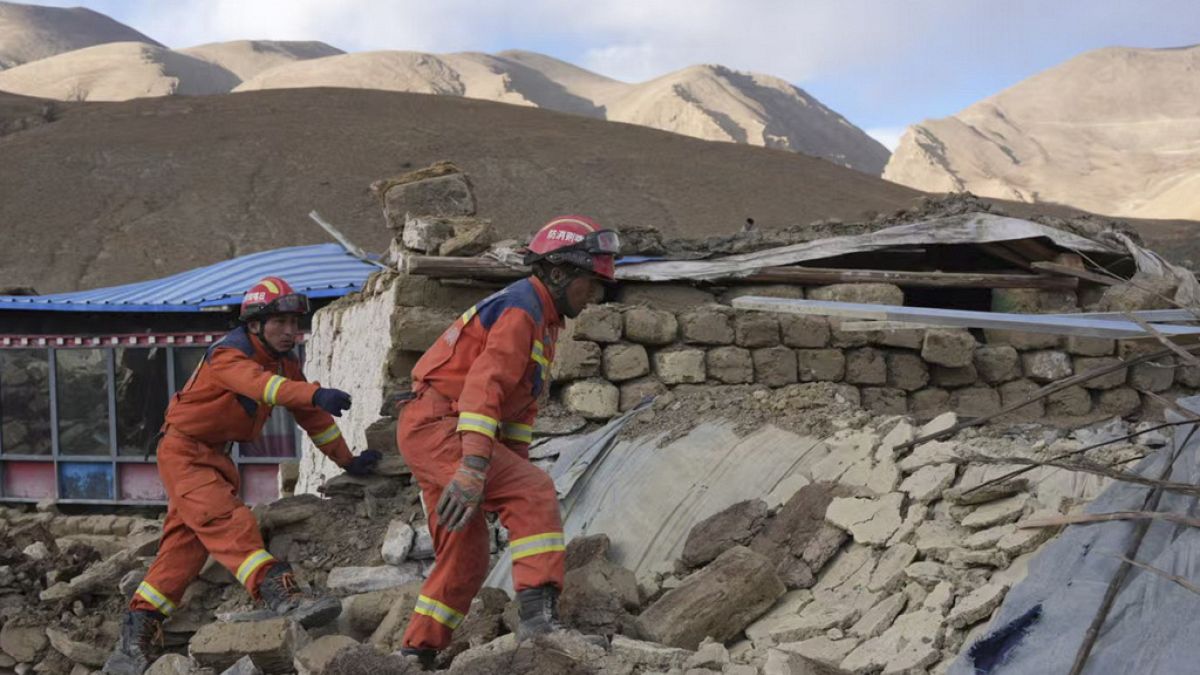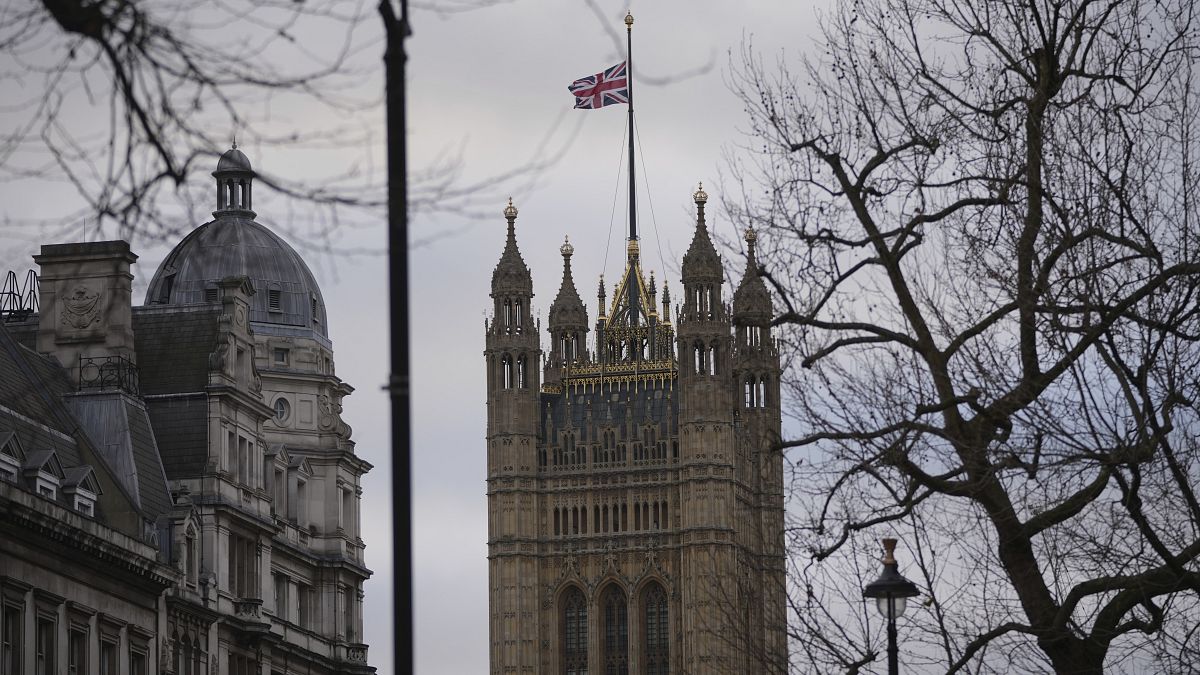Baerbock: Germany open to sending peacekeeping troops to Ukraine

Annalena Baerbock said Germany was committed to supporting any initiative promoting lasting peace in Ukraine.
The German foreign minister has said her government is open to the possibility of sending soldiers to Ukraine in the event of a peace deal.
“The German side will support everything that serves peace in the future,” Annalena Baerbock said on the sidelines of a NATO meeting in Brussels on Wednesday.
Reports of thousands of North Korean soldiers arriving in Ukraine to support Russia have reignited a debate about whether European countries should send soldiers to the war-torn country should a peace agreement hold.
EU foreign policy chief Kaja Kallas said over the weekend she wouldn’t “rule anything out,” although she added that any decision would depend on Ukraine’s approval.
Currently, there is no sign of any peace arrangement to stop the conflict, which is soon to reach its third anniversary.
NATO allies are preparing for the inauguration of US President-elect Donald Trump in January next year, who has promised to take a radically different approach to the war.
Trump has repeatedly said he would secure peace in the region but has not provided much detail on how.
According to British newspaper the Telegraph, his top team has reportedly suggested that European troops could be deployed to Ukraine to enforce a buffer zone in the event of a peace deal.
Moscow and Kyiv have radically different views on the future of the conflict, with Ukrainian President Volodymyr Zelenskyy suggesting on Saturday that Ukraine’s membership to NATO could end the “hot stage of the war”. He added that membership should be extended to all territory under Kyiv’s control.
That suggestion puts him at odds with Russian President Vladimir Putin, who has said any peace agreement should acknowledge Russia’s territorial gains and security demands — including that Kyiv renounces joining NATO.
On Monday, however, Zelenskyy conceded to Japan’s Kyodo news agency that Ukraine’s military “lacks the strength” to retake some of the territories occupied by Russia, implying that a diplomatic agreement could be possible.
The German government has so far resisted any commitment to sending troops to Ukraine, instead providing financial and military support. On Monday, during a surprise visit to Kyiv, German Chancellor Olaf Scholz announced an additional €650 million military aid package.
Germany may find its stance on Ukraine shifting depending on the results of snap federal elections that have been set for 23 February.
The centre-right Christian Democratic Union’s leader, Friederich Merz, has been critical of Scholz’s position on Ukraine, particularly his refusal to send Kyiv powerful Taurus missiles.
Merz, whose party is currently topping the polls, has said he would push harder to allow Ukraine to use the weapons in order to put pressure on Russia.
World News || Latest News || U.S. News
Source link



